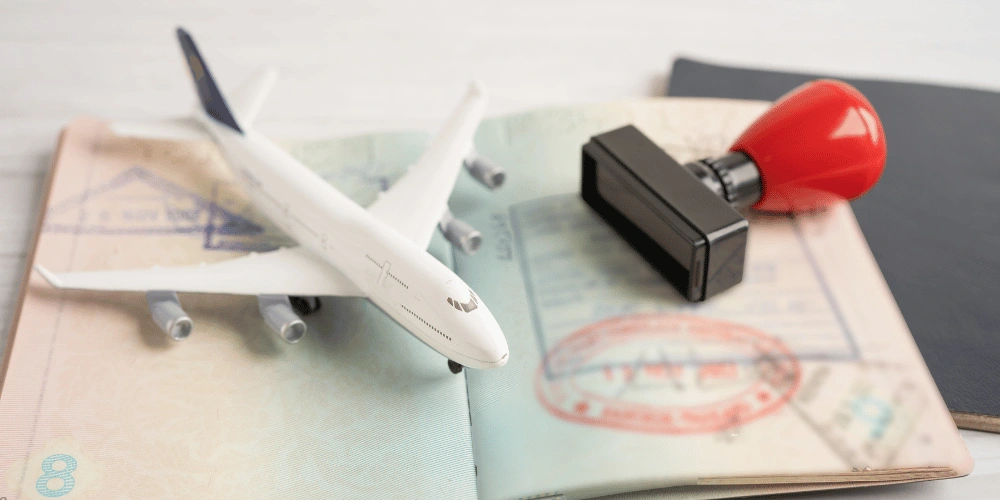Study Abroad in 2025: Common Pitfalls to Avoid for a Truly Rewarding Experience

Anúncios
Every year, thousands of American college students embark on study abroad journeys that can transform their academic and personal lives.
According to the 2024 Open Doors report from the Institute of International Education, over 280,000 U.S. students studied overseas during the 2022-2023 academic year—a near 50% increase compared to the previous year.
With international education surging back to pre-pandemic levels, the excitement and opportunities of studying abroad have never been greater.
However, experts warn that without thorough preparation and mindful planning, this exciting adventure can quickly turn stressful, costly, or even problematic.
Anúncios
Whether it’s choosing the wrong program, underestimating expenses, or misreading cultural norms, there are several avoidable mistakes that can dampen the overall experience.
This article breaks down the most common missteps and offers practical advice on how to navigate them so you can make the most of your time abroad.
Selecting the Right Study Abroad Program: Quality Over Popularity
Universities often offer dozens of study abroad options spanning continents and fields of study, which can make choosing the perfect program overwhelming.
Many students tend to gravitate towards popular destinations or programs their friends choose, but this approach can backfire.
Nick Gozik, the dean of global education at Elon University, highlights the significance of making intentional decisions.
Anúncios
He suggests students think deeply about what they want to gain from the experience — academically, professionally, and personally — rather than following the crowd.
Asking yourself what skills you want to develop or which culture intrigues you the most can be a helpful starting point.
Greg Muger, director of student experience for international programs at Pepperdine University, recommends making a “needs and wants” list.
This list should clarify which factors are non-negotiable (such as language, academic credits, or internship opportunities) and where you might be flexible.
Using such a framework allows advisers to provide tailored recommendations, increasing the chances of a fulfilling program match.
Don’t Delay: Early Paperwork and Visa Preparation Are Crucial
One of the most frequent mistakes students make is procrastinating on essential paperwork.
Applying for study abroad programs, passports, and visas requires ample lead time—experts advise starting at least six months before your intended departure.
The process for obtaining a student visa can take anywhere from 30 to 90 days, depending on the destination and your home country’s embassy procedures.
Many universities offer resources or dedicated offices to assist with these formalities, but it’s also possible to begin passport applications at your local post office.
Make sure your passport is valid for at least six months beyond your planned return date, as many countries require this for entry.
Additionally, re-entry into the United States may involve updated regulations; students who have engaged in political activities abroad or who face special circumstances should consult their university’s designated officials well before traveling.
Randeep Kullar, assistant director of study abroad at Loyola Marymount University, stresses that students treat the entire process as a major life event rather than a casual trip.
Breaking the preparation into manageable steps with personal deadlines can help avoid last-minute crises and broaden your options.

Budget Wisely: Anticipate All Costs and Financial Aid Details
Studying abroad can be expensive, with program fees varying widely depending on location, duration, and included services.
While some schools offer scholarships, grants, or financial aid to offset these costs, not all students realize how their aid packages will apply overseas.
Kullar notes that unexpected financial shortfalls often occur because students don’t fully understand how aid transfers or billing works abroad.
With the recent pause on some federal funding programs, such as Fulbright scholarships, it’s more important than ever to research all available resources early.
Beyond tuition and housing, factor in daily living expenses like food, local transportation, travel, and souvenirs.
Currency exchange rates can also affect your budget significantly.
A practical tip is to draft a realistic monthly budget and include extra funds for emergencies or special trips.
Payment-wise, carrying a credit card without foreign transaction fees can save money, and having some local currency upon arrival will ease your first days abroad.
Respect Cultural Differences: Preparation Prevents Missteps
Every country has its own customs and social expectations.
What’s normal or polite in the U.S. might be awkward or even offensive elsewhere.
For example, punctuality norms vary greatly.
In many American settings, being on time is a sign of respect, but in countries like Argentina, arriving exactly at the scheduled time can be perceived as rude or overly rigid.
Most universities offer cultural orientation sessions, which are invaluable for understanding local etiquette, dining customs, dress codes, and social norms.
In addition, doing independent research through documentaries, local news, or cultural guides can prepare you for everyday interactions.
Learning a handful of key phrases in the local language can also demonstrate respect and open doors socially.
Being culturally sensitive not only helps avoid embarrassment but enriches your experience by building deeper connections with locals.
Medication Awareness: Know the Rules Before You Pack
Many students overlook the complexities of taking prescription medications abroad.
Some common U.S. prescriptions, such as Adderall or certain antidepressants, are illegal or heavily regulated in other countries.
Before departure, consult your doctor and research the destination’s regulations. You may need to carry prescriptions, physician notes, or limit supplies to 30 days.
Bringing more than allowed or unapproved medications can result in serious legal consequences, including jail time or immediate deportation.
If your medication is restricted, consider whether your health needs can be managed safely overseas or if an alternative location might be more appropriate.
Pack Smart: Essentials and Space for the Unexpected
While overpacking is a widespread problem, forgetting important items can cause unnecessary stress.
Consider the climate, your planned activities, and program requirements when choosing what to bring.
A student attending classes full-time will need different clothing and supplies than someone also doing an internship or volunteer work.
It’s often easier and more space-efficient to buy basics like bedding or toiletries after arrival.
Don’t forget to leave extra room in your luggage for souvenirs and items you might collect during your stay.
Avoid Overbooking: Balance Exploration With Rest
Many students arrive eager to see everything and do everything, but packing your schedule with constant travel or sightseeing can lead to burnout.
Experts advise slowing down to savor the experience. Build meaningful relationships, immerse yourself in the local culture, and give yourself time to adapt and reflect.
While weekend trips and excursions are wonderful, they should complement—not overwhelm—your primary academic and cultural immersion goals.
Conclusion: Preparation Is Key to a Successful Study Abroad Experience
Studying abroad is undeniably a life-changing opportunity filled with adventure and growth.
However, it requires thoughtful planning and attention to detail.
By carefully selecting the right program, beginning paperwork early, budgeting realistically, respecting cultural norms, managing health needs, packing thoughtfully, and pacing yourself, you’ll avoid common pitfalls and create an experience that is enriching academically, personally, and professionally.
The rewards of study abroad are immense for those willing to prepare adequately and embrace the journey with openness and mindfulness.






